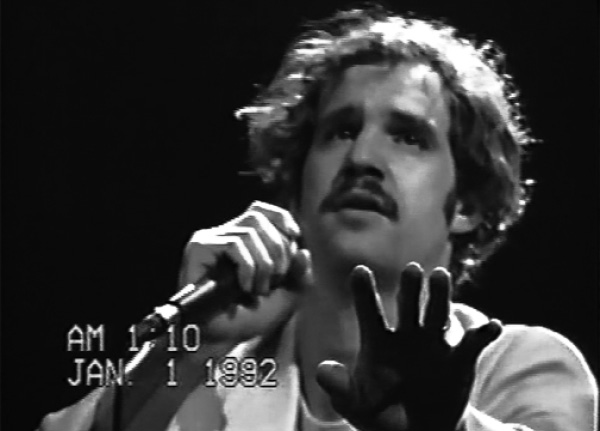
I'M FULL OF MYSELF
first performed on April 18, 2017
Art Museum at The University of Toronto, Toronto, Canada
performed three times in 2017
EVAN TYLER
Toronto, Canada
342073669a342073669r342073669t342073669@342073669e342073669v342073669a342073669n342073669t342073669y342073669l342073669e342073669r342073669.342073669c342073669a
evantyler.ca
I'M FULL OF MYSELF
EVAN TYLER
In the fall of 2016, I experienced a series of transformational events: addiction, resuscitation from a drug overdose, and a subsequent journey through recovery, which culminated in the completion of my Masters Degree in Visual Studies (MVS) at The University of Toronto. A fusion of these experiences with my interest in 1990s pop psychology and the tropes of the emergence of life coach culture developed into a performance for video as well as a live performance.
For this project, I performed a life coach presentation on stage, implementing the venue house lights and smoke machines that emit a dense vapor as dramatic elements to the life coach’s stage delivery. The performance was executed to an empty theatre with four analog cameras set up to capture a long-winded and elusive motivational presentation on how to be in touch with one’s “internal landscape”. The audio for the performance was purposely recorded, practiced, and studied, and then lip-synched on stage to the audio track for video recording. The intention of this strategy was to create a distancing device that creates a tension between sincere, convincing content and calculated, theatrical, fixed strategies. The end result is a promotional video displayed on a big screen television (circa 1992) staged at The Art Museum, University of Toronto. In addition to the video performance, I was present for the duration of the exhibition to promote the video and to engage with the audience in a “theater of therapies”.
The success of this work lies in an intended blurred line between the authentic and the satirical. Paradoxically, this is also where failure is located. While the work does create a tension of boundaries, it also calls into question the seriousness of mental health and addiction—a topic that isn’t necessarily resolved in any useful way. The in-gallery performance observed the success/failure as some participants wavered to the satirical and others to the sincere (empathic), which left me wondering how to perform as someone not really qualified to coach another human being.